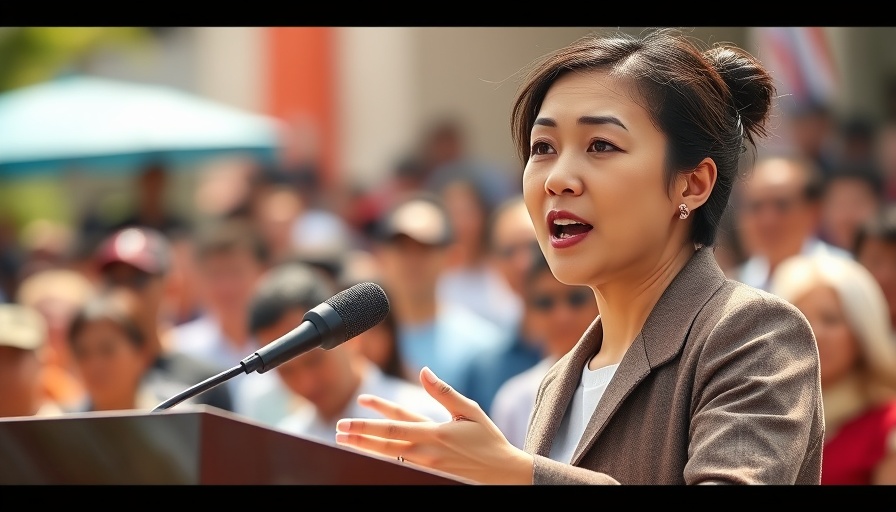
Mayor Wu Takes a Stand Against Trump’s Federal Plans
Boston Mayor Michelle Wu is making waves as she publicly challenges President Trump’s strategy to deploy National Guard troops and ICE agents to cities facing crime spikes. Wu’s assertive stance is not just about local safety; it symbolizes a broader resistance against perceived federal overreach in community matters.
A Tenuous Balance Between Safety and Autonomy
In her remarks, Wu emphasizes Boston’s commitment to being a sanctuary city, underscoring the Boston Trust Act which restricts police cooperation with ICE without a criminal warrant. This position aligns with the city’s identity as a bastion of freedom, yet it raises questions about public safety and the efficacy of rejecting federal assistance. While her sentiments resonate with many progressives, they echo strategies seen in other U.S. cities—often with mixed results—where local leaders have opposed federal interventions only to face the harsh realities of increasing crime.
Historical Context: A Legacy of Defiance
Wu’s defiance has historical parallels, recalling moments when leaders like President Lyndon Johnson made decisions that prioritized civil rights over state objections. In 1965, Johnson federalized the Alabama National Guard to protect civil rights marchers, a bold move that contrasts sharply with current circumstances where local leaders resist federal aid. The implications of Wu’s stand could shape Boston’s future relations with federal authorities and influence how similar conflicts will unfold across the nation.
What This Means for Boston
Local residents and advocates may feel empowered by Wu’s assertive approach; however, the path ahead is fraught with challenges. What will it mean for crime rates and community safety if the federal government remains sidelined? Wu's assertion of local autonomy resonates deeply with a populace that prides itself on independence, yet it also invites scrutiny regarding the effectiveness of existing local policing strategies.
Future Considerations: A Divisive Path Ahead
While Wu’s statements rally some citizens, they could alienate others who feel that public safety must come before sanctuary policies. Following this trajectory, Boston may become a focal point in the national conversation about how cities balance community protection with civil rights—a precarious debate that could redefine local and federal relationships for years to come.
As Wu continues her fight against federal overreach, residents are invited to reflect on how these decisions will directly affect their community's safety and values. Engagement in local governance and conversations can spark the necessary dialogue on how best to move forward amidst these complex challenges.
 Add Row
Add Row  Add
Add 




Write A Comment